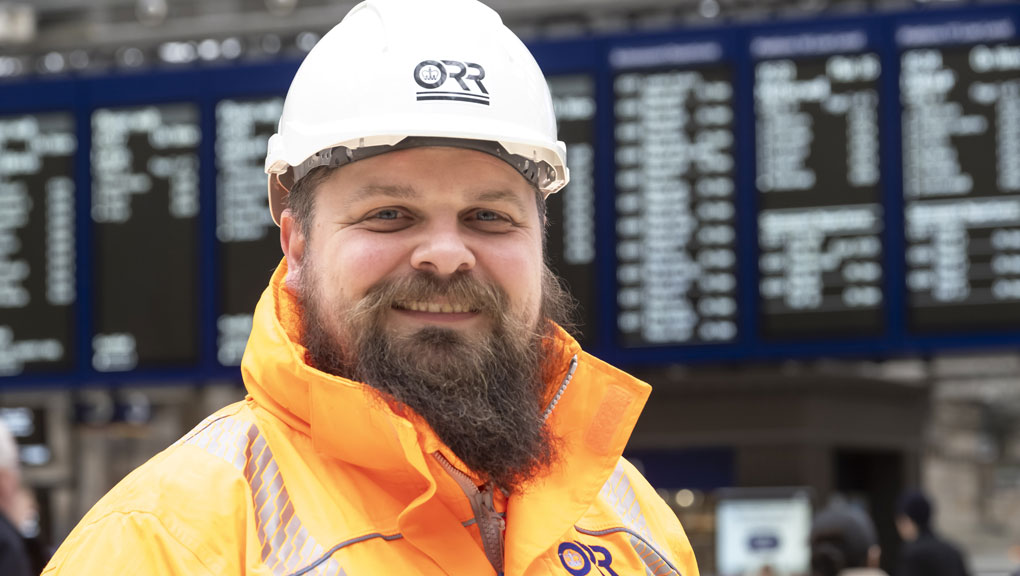We remain focused on supporting the railways through a considerable period of change.
As we enter the first year of Control Period 7 (CP7), we are readying ourselves to hold Network Rail to the commitments to safety it made in its Delivery Plan.
With fewer asset renewals and a greater reliance on inspection and maintenance activities, we will examine arrangements for ensuring Network Rail realises the benefits of its Modernising Maintenance Programme, including risk-based maintenance to deliver safe and reliable assets. We will also closely monitor their delivery of the Infrastructure Monitoring project, that provides essential data to infrastructure managers.

The occupational health, safety and wellbeing of railway workers remains a priority for ORR. On health, our focus will be on workforce exposure to welding fumes and asbestos in the non-mainline sectors. We will continue to engage with the important work of the Rail Wellbeing Alliance and support industry’s efforts on this issue, as we look ahead to developing our strategy for health regulation over the next five years.
Extreme weather events and their impact on buildings and structures management continue to be a significant and growing issue for the rail industry and we will support them in addressing this as part of the CP7 delivery plan. We will continue to work with Network Rail’s Weather Risk Task Force and monitor the delivery of its action plans for risk mitigation.
We will also look at areas of key risks for train and freight operating companies and, through our membership of industry groups, develop targeted strategies to drive improvement. We welcome efforts by train companies to collaborate on Risk Management Maturity Model (RM3) assessments and action plans, to encourage excellence in health and safety management.
New Channel Tunnel binational regulatory arrangements are expected to come in this year, transferring National Safety Authority (NSA) responsibilities for the UK half of the tunnel to ORR. We will continue to work constructively with EPSF, the French railway NSA, to plan a smooth and effective transition.
Our emphasis with Transport for London continues to include asset management and the management of change of risk associated with, for example, the delivery of London Underground’s hugely ambitious Four Lines Modernisation (4LM) project on the underground network.
We continue to support and influence the tramway sector, holding them to account for delivering health and safety. Our planned work includes a focus on how tramway operators are managing the risk of collision between tram vehicles, other vehicles and vulnerable road users through delivery of effective health and safety management systems and reviewing our approach to regulating risks arising from public behaviour around the tramway.
We will continue to support health and safety leadership across the heritage sector as it explores options to better promote consistent standards, including through engagement activities on risk management improvement and the use of technology where appropriate.
We will input on industry policy, legislation and guidance as it relates to health and safety on the railways. This year we will work with the Department for Transport on proposed legislation to lower the minimum age for train drivers and to secure potential wider reforms following the case for change made in the 2023 Post Implementation Review of the Train Driving Licences and Certificates Regulations.
As new technologies and innovative approaches are brought into the industry, ORR is working closely with other health and safety regulators, as well as investing in our own expertise. We will continue to work with industry to influence how the evolution and adaptation of technology by Network Rail can improve safety.
Our important day-to-day proactive and reactive work of inspections, investigations, enforcements, and statutory activity, such as issuing of safety certificates and authorisations, train driving licences, level crossing orders and RAIB recommendation follow-ups, will continue across the year.
Linked to this, a large piece of work this year will be to support a Fatal Accident Inquiry to examine the full circumstances surrounding the tragic deaths and injuries from the derailment of a train at Carmont, Aberdeenshire in 2020.
We have also had the “first notice” from the Procurator Fiscal about the Fatal Accident Inquiry relating to the Saughton Tram Crossing fatality. Scottish Solicitors have been engaged and input to the initial hearings is likely to be in 2024-25.

